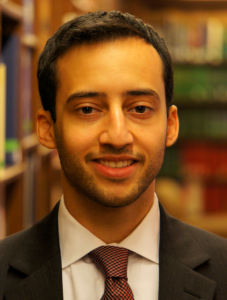Justin’s perspective on applying to the Foreign Service
This year we asked our Admissions Interns to write a little more for the blog than simply their fall semester intros. First to send me a post is second-year MALD, Justin, who covers a topic that is clearly on the mind of many of the applicants whose essays we’ve been reading — the process of applying to the U.S. Foreign Service.
 Prior to taking off for the summer after my first year at Fletcher, I quickly photocopied the Office of Career Services’ U.S. Foreign Service Officer Test guide book. With an internship lined up at the Department of State, I figured it was as good a time as any to begin to more seriously consider a career in the Foreign Service. That summer I developed a habit of going through the guide during my morning commutes, and interning in the Office of Chinese and Mongolian Affairs proved invaluable in gaining a better sense of life as a diplomat.
Prior to taking off for the summer after my first year at Fletcher, I quickly photocopied the Office of Career Services’ U.S. Foreign Service Officer Test guide book. With an internship lined up at the Department of State, I figured it was as good a time as any to begin to more seriously consider a career in the Foreign Service. That summer I developed a habit of going through the guide during my morning commutes, and interning in the Office of Chinese and Mongolian Affairs proved invaluable in gaining a better sense of life as a diplomat.
While I was extremely grateful for the guide, upon my return to campus, I came to discover the abundance of other resources Fletcher had to offer students interested in the Foreign Service — the first being my fellow classmates. My studying for the exam picked up in intensity once I registered for the test in August, which made the pressure of what was looming a bit more palpable. However what was comforting is that one doesn’t have to walk the halls of Fletcher too long before bumping into another student interested in the Foreign Service. I teamed up with a classmate who had registered for the same test and had experience with the process. He and I compared notes and took practice exams together, making the studying much more manageable and enjoyable.
When I received word of having passed the exam, I quickly found myself immersed in the writing process for my personal narratives. This phase of the Foreign Service application is arguably the most opaque. In an effort to gather multiple opinions on my chosen topics and overall approach, I again made use of a few resources available on campus. I first ran to the Office of Career Services, where I met with one of the coaches, who provided her thoughts on the professional experiences I was considering highlighting in my essays. After typing up a first draft, I met with Fletcher’s current State Department Fellow, who was generous enough to set aside time to discuss a draft. She was quite frank and very open in providing guidance, which was more than appreciated, as I found it surprisingly difficult to convey everything I would have liked within the word limits provided.
I later met with a student writing tutor. It was my first time signing up for a meeting, and I was not disappointed. I was impressed with how much revision we squeezed into the thirty-minute time slot. At that point in the writing process, after incorporating the tutor’s advice, I felt much better than when I had started. As time wound down, I had a quick meeting with the Diplomat in Residence, to get her initial thoughts. It turned out to be a great discussion that spanned beyond the narratives themselves. That should not have come as a surprise, as it was an insightful conversation with the prior Diplomat in Residence that led me to apply for a State Department internship in the first place.
After what felt like an eternity of being distracted from actual school work, I submitted my narratives and am now awaiting a response as to whether I move on to the oral assessment. Whether or not it works out this time around, I feel that the process has equipped me to present my goals, interests, and past experiences in a cogent manner, regardless of the job opportunity. While it would be disappointing to not progress further, there’s always the option of reapplying next fall. For the time being, I plan to explore alternatives and diversify my job prospects.